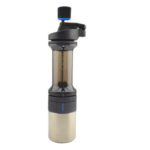Does Coffee Cause Inflammation?
According to the National Coffee Association, the average coffee drinker consumes just over 3 cups per day. No doubt, coffee is among the most consumed beverages not only in the U.S. but worldwide.
There always seems to be some type of controversy surrounding the finer things in life, and our beloved java is no exception. As with many of our guilty pleasures, there are downsides to drinking too much java. Is inflammation one of these disadvantages?
While some believe coffee causes inflammation, others believe it reduces it. It’s important to understand how what we consume affects our bodies. Therefore, in this guide, we’ll get to the bottom of the question, does coffee cause inflammation?

What is Inflammation?
You know that swelling you get after an insect bite? This is known as inflammation. It’s caused when your immune system sends blood cells to fight a specific issue. But inflammation is much more than just swelling. It’s a natural response from your body caused by factors trying to harm it (toxins, bacteria, trauma, etc).
Types of Inflammation
There are two types of inflammation: acute and chronic.
Acute inflammation begins rapidly and becomes severe in a short period of time. It’s normally caused by tissue damage due to trauma, microbial invasion, and harmful compounds. For example, if you sprain your ankle and it swells, this is known as acute inflammation. This swelling usually lasts 2-6 weeks before healing completely.
Chronic inflammation is more of a silent killer. It starts slow and stays in the body much longer. It can last a few months to a few years depending on the steps taken to reduce the swelling. An example of chronic inflammation is arthritis – the body feels like it’s in constant attack, therefore it keeps fighting.
How Coffee Affects the Body
Coffee plays a role in how much inflammation the body has. Whether it directly causes inflammation is a result of an individual’s genetics. People with underlying health issues like anxiety, palpitations, or hormone issues, have a higher chance of being affected negatively by caffeine.
If you’re someone who suffers from anxiety, coffee may make your symptoms worse. Anxiety can cause your heart to beat faster and the prolonged stress on the heart can lead to long-term inflammation.
Some indications that you may be at risk are balance problems, muscle weakness, constant fatigue, diarrhea, lower back pain, hardening of arteries, blood clotting, dry eye, and brain issues.
On the other hand, java has active compounds with anti-inflammatory properties that help reduce inflammation and protect against certain diseases. Some studies show that coffee consumption is linked to health benefits such as lowers the chance of cancer or liver conditions (all which are an indication of chronic inflammation).
Other anti-inflammatory properties in coffee include:
- Reduced risk of heart disease or type 2 diabetes
- Lower risk of depression among women
- Lower risk of lethal prostate cancer among men
- Lower risk of stroke
- Protection against Parkinson’s disease
Is Coffee Inflammatory or Anti-Inflammatory?
Is coffee inflammatory? The short answer is yes and no.
If you have underlying health conditions, coffee can negatively impact your health. However, if you suffer from inflammation, there are other tips you can take that will improve your health that don’t involve giving up coffee. These include:
- Getting good sleep and managing your stress levels.
- Cut back on excess alcohol, sugar, and other inflammatory foods.
- Adopt a healthy diet and get weight under control if necessary.
- Make time to exercise.
According to Harvard Medical School, coffee has micro-nutrients that we get from plant-based foods known as polyphenols. These are good for the body and lucky for us avid java drinkers, coffee is one of those sources. Therefore, coffee has anti-inflammatory compounds that may protect against inflammation.
The Bottom Line
Coffee is a beverage loved by millions around the world. It’s a drink rich in antioxidants that provides many health benefits to our bodies. While research suggests that drinking java can reduce inflammation and lower risk of type 2 diabetes, heart disease, and certain types of cancer, it can also increase inflammation for some people.
If you suspect you’re one of the unlucky ones, reduce your coffee intake and evaluate whether your health improves or stays the same. If it stays the same, this means coffee isn’t the culprit and there’s something else causing your inflammation. In this case, we suggest speaking with your doctor.
All in all, making sure you are monitoring your coffee consumption levels will have major effects on our bodies and overall health.





